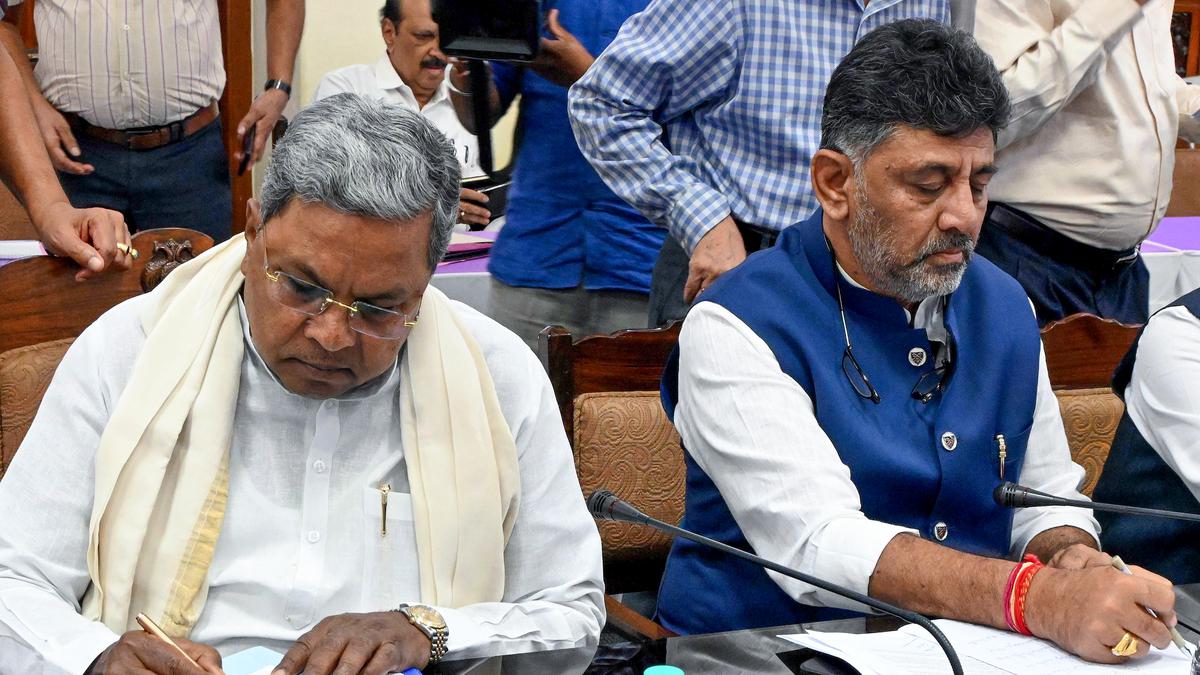
Karnataka to appeal recommendation to release 5,000 cusecs per day of Cauvery water to Tamil Nadu
The Hindu
Cauvery Water Regulation Committee (CWRC) recommended release of 5,000 cusecs of Cauvery water daily to Tamil Nadu for 15 days
A day after the Cauvery Water Regulation Committee (CWRC) recommended release of 5,000 cusecs of water daily to Tamil Nadu for 15 days, Karnataka decided to appeal citing the poor quantum of storage in four reservoirs owing to a record deficit rainfall in August. Deputy Chief Minister D.K. Shivakumar, who holds the Water Resources portfolio, will meet the legal team in Delhi on September 13 night before the Karnataka government takes any decision on release of water.
On September 13, Chief Minister Siddaramaiah chaired an emergency all-party meeting in Bengaluru to inform the opposition about the developments and elicit their feedback. After the meeting, he told mediapersons, “We will appeal against the September 12 order. The CWRC is only a recommendatory body. Let us see what happens. We will also approach the Supreme Court to convince them about the ground situation.”
In August 2023, the Cauvery basin in Karnataka recorded the least rainfall in the last 125 years. While the forecast for the requirement of Cauvery water in Karnataka till next monsoon was about 106 TMC, the current availability is 53 TMC.
“If we have to protect our standing crops, 70 TMC feet of water is required. We are also not releasing the full quantum of water necessary for irrigation. While 33 TMC is needed for drinking water, 3 TMC is required for industrial use, taking the total to 106 TMC.”
According to him, as against 99 TMC that had to be released to Tamil Nadu in a normal year, Karnataka has released 37.7 TMC till September 11.
Among other options, the Chief Minister said that the government is planning to convene a meeting of members of Parliament from Karnataka before the special session starting on September 18.
“The (nine) MPs who participated in the meeting today have assured that they will raise the issue and bring pressure on the Union Government (to understand the ground reality.) We want the country to know about our problems. It is not about not giving water. We do not have water.”











